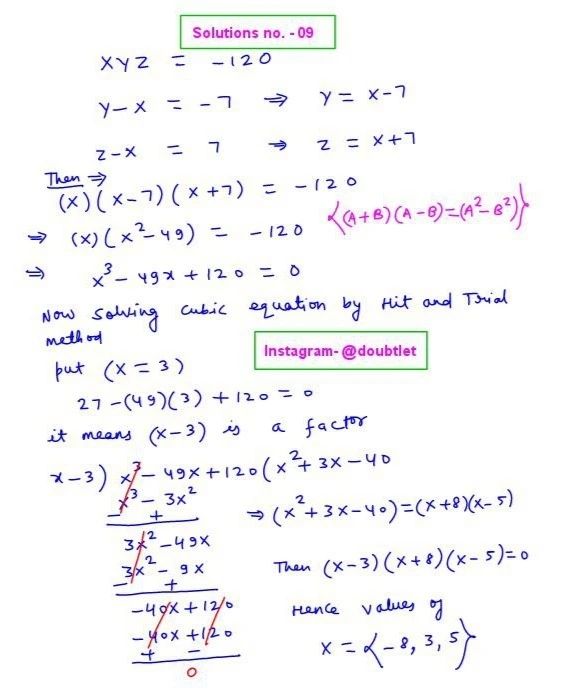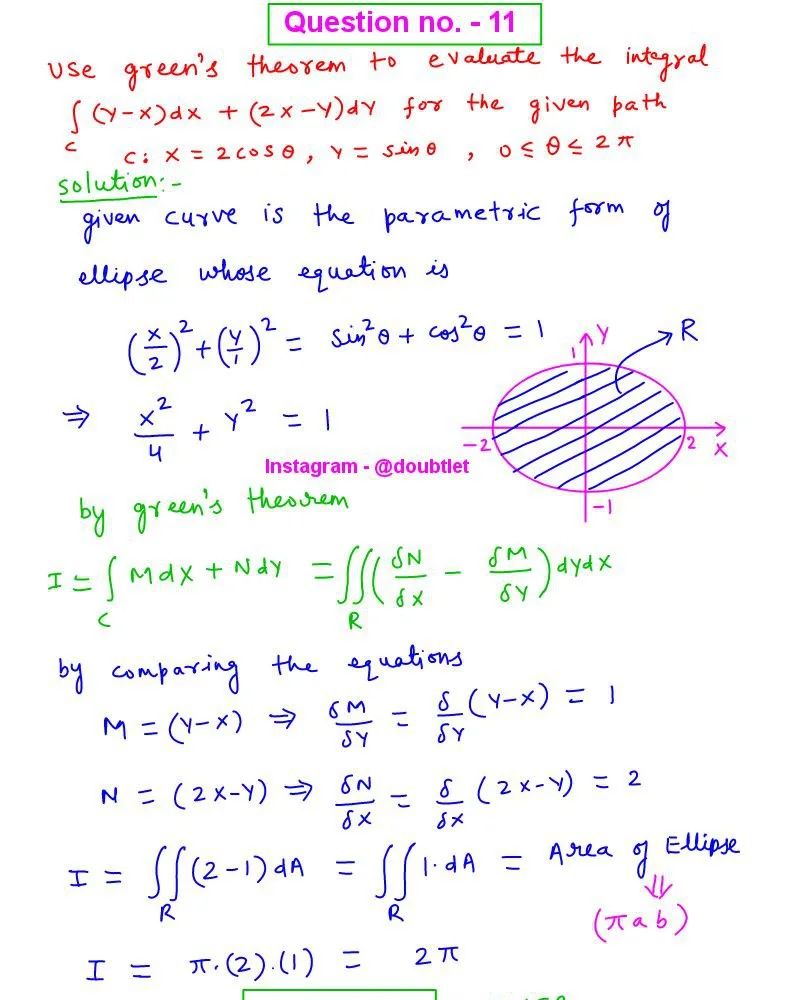
Neetesh Kumar | November 17, 2024
Calculus Homework Help
Contact me if you need help with Homework, Assignments, Tutoring Sessions, or Exams for STEM subjects.
You can see our Testimonials or Vouches from here of the previous works I have done.
Get Homework Help
Step-by-step solution:
Step 1: Define the terms
For the integral ∫−13(3−4x)dx:
- a=−1, b=3.
- Δx=nb−a=n3−(−1)=n4.
- xi=a+i⋅Δx=−1+i⋅n4=−1+n4i.
Step 2: Write the Riemann sum
The Riemann sum is:
i=1∑nf(xi)Δx,
where f(x)=3−4x. Substituting xi=−1+n4i into f(x):
f(xi)=3−4(−1+n4i)=3−4(−1)−n16i=3+4−n16i=7−n16i.
Thus:
f(xi)Δx=(7−n16i)⋅n4.
Expand:
f(xi)Δx=n28−n264i.
The Riemann sum becomes:
i=1∑nf(xi)Δx=i=1∑n(n28−n264i).
Step 3: Separate the sum
Split the summation into two parts:
i=1∑n(n28−n264i)=i=1∑nn28−i=1∑nn264i.
-
First term:
i=1∑nn28=n28⋅n=28
-
Second term: i=1∑nn264i:
Use the formula for the sum of the first n integers:
i=1∑ni=2n(n+1).
Substituting:
i=1∑nn264i=n264⋅2n(n+1)=n264⋅2n2+n=2n64(n+1)=n32(n+1).
Step 4: Combine the terms
The Riemann sum becomes:
i=1∑nf(xi)Δx=28−n32(n+1).
Simplify:
i=1∑nf(xi)Δx=28−32−n32=−4−n32.
Step 5: Take the limit as n→∞
As n→∞, the term n32→0. Thus:
limn→∞i=1∑nf(xi)Δx=−4
Final Answer:
∫−13(3−4x)dx=−4
Please comment below if you find any error in this solution.
If this solution helps, then please share this with your friends.
Please subscribe to my
Youtube channel for video solutions to similar questions.
Keep Smiling :-)















Leave a comment